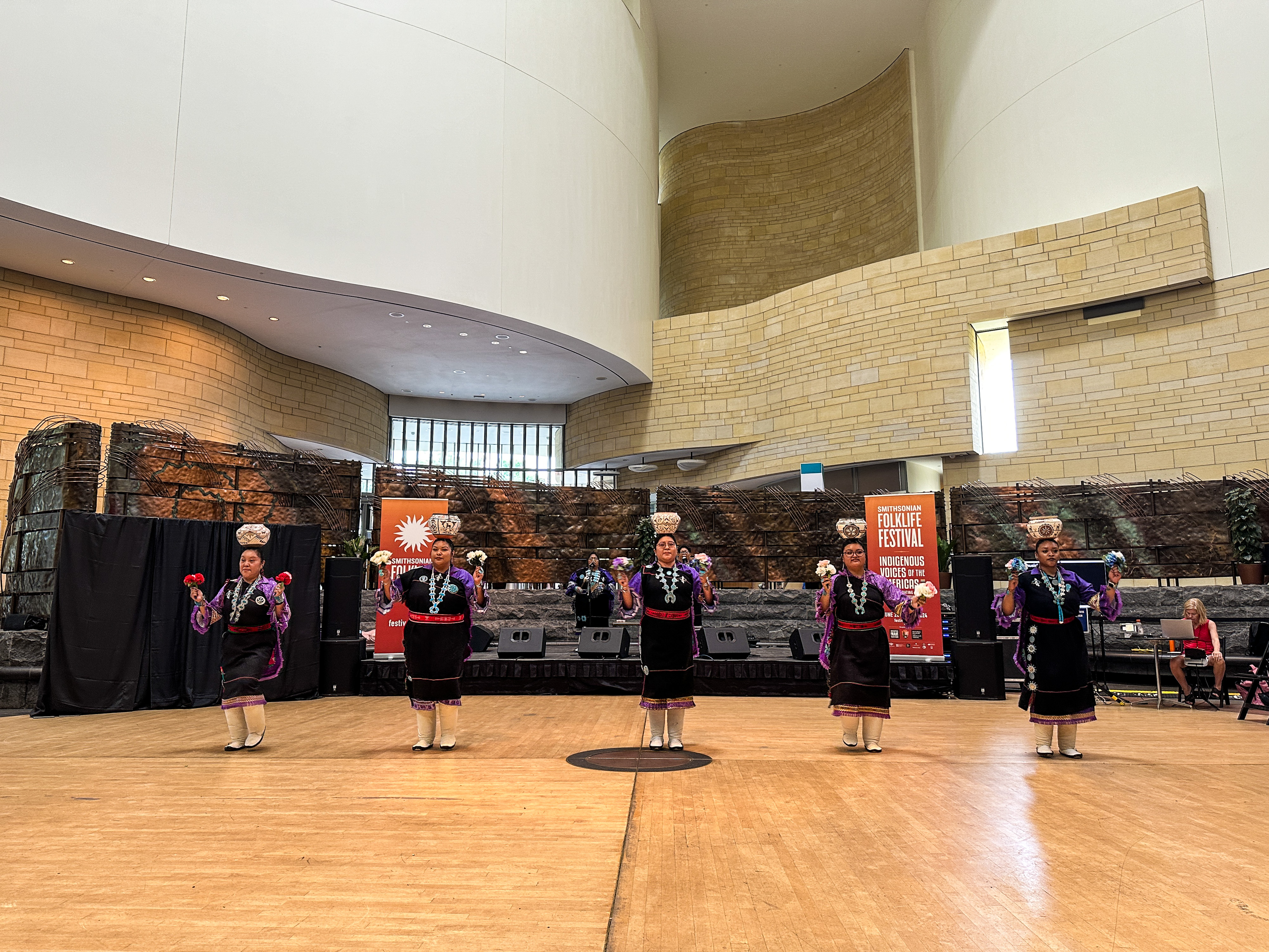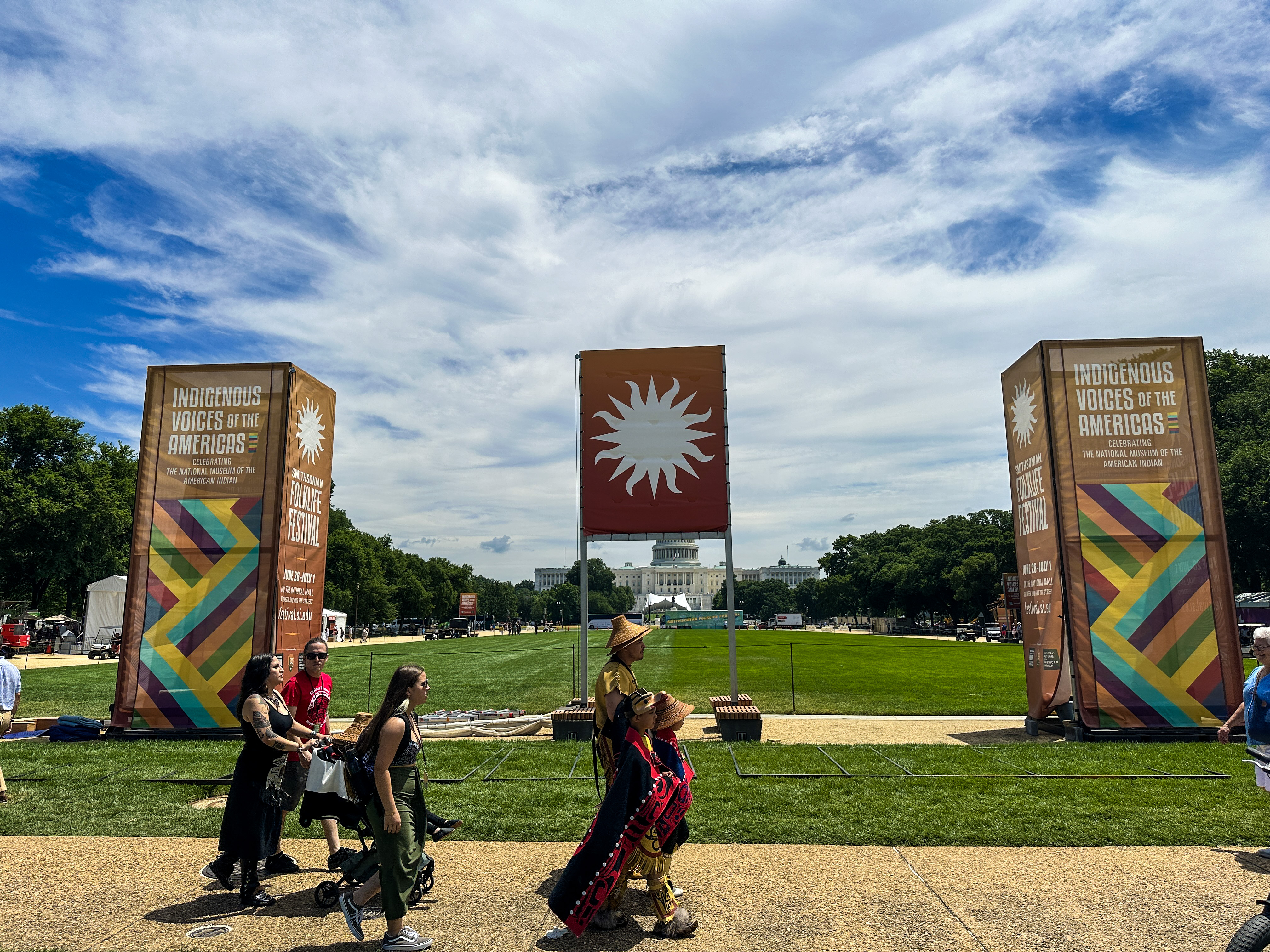Indianz.Com > News > Indian Country set for big and busy week on Capitol Hill

Indian Country set for big and busy week on Capitol Hill
Monday, July 22, 2024
Indianz.Com
WASHINGTON, D.C. —
Indian Country is set for a busy week here in the nation’s capital, coming after the Republican National Convention and the stunning end of Democratic President Joe Biden’s re-election campaign.
Four hearings featuring tribal and Native leaders are scheduled to take place on Tuesday, Wednesday and Thursday. And by the end of the week, an appropriations bill with record levels of funding for Indian Country is expected to take a big step forward on Capitol Hill.
Here’s what to watch as the week unfolds.
Indian Water Rights
A whopping 12 Indian water rights bills are on the agenda at a hearing before the House Committee on Natural Resources on Tuesday morning, representing $12 billion in investments in tribal and neighboring communities across the country.
The hearing, featuring 13 witnesses, is bipartisan in nature even though Republicans are in charge of the U.S. House of Representatives. Five of the tribal water measures are led by GOP members from Arizona, California and Montana.
And of the dozen, six address long-standing tribal water issues in New Mexico. Altogether, the legislation benefits 13 tribes in the state.
“We must honor the trust and treaty responsibilities we have ensuring water security for our tribes,” observed Rep. Melanie Stansbury (D-New Mexico), whose Democratic colleagues from the Land of Enchantment are united in supporting the entire slate of legislation.
The focus on water in Indian Country continues with a hearing before the Senate Committee on Indian Affairs on Thursday afternoon. A bill to settle the rights of Ohkay Owingeh, located in northern New Mexico, is on the agenda.
“The United States has a moral obligation to honor its trust responsibility to tribe,” said Sen. Martin Heinrich (D-New Mexico), who introduced the U.S. Senate version of the Ohkay Owingeh Rio Chama Water Rights Settlement Act last month.
House Subcommittee on Water, Wildlife and Fisheries Notice
Legislative Hearing on H.R. 1304, H.R. 3977, H.R. 6599, H.R. 7240, H.R. 8685, H.R. 8791, H.R. 8920, H.R. 8940, H.R. 8945, H.R. 8949, H.R. 8951 & H.R. 8953 (July 23, 2024)
Senate Committee on Indian Affairs Notice
Legislative Hearing to receive testimony on S. 4370 & S. 4505 (July 25, 2024)

Haskell Indian Nations University
On Tuesday afternoon, the House Committee on Natural Resources and the House Committee on Education and the Workforce are coming together for a joint hearing to address alleged misconduct at Haskell Indian Nations University (HINU), a post-secondary institution in Kansas.
Unlike tribal water rights, the attention on Haskell originates with one party.
According to Republicans on both committees, the Bureau of Indian Education (BIE) has ignored repeated requests for more information about allegations of harassment, bullying, nepotism, theft and sexual assault on the college campus.
“Allegations of campus misconduct at HINU, including sexual assault, must never be disregarded and the students deserve better from the federal government and the Bureau of Indian Education,” Rep. Paul Gosar (R-Arizona), who chairs the House Subcommittee on Oversight and Investigations, said in announcing the hearing.
“Misconduct and abuse at Haskell Indian Nations University has been ignored for far too long and impacted far too many, all while there’s been no action from the Biden administration,” said Rep. Burgess Owens (R-Utah), the chair of the House Subcommittee on Higher Education and Workforce Development.
The witness list is expected to include a former president of Haskell who was removed from the post by the BIE and a former cross-country coach who believes he was fired because he reported allegations of misconduct. A student who disclosed being sexually assaulted is also slated to testify.
House Subcommittee on Oversight and Investigations Notice
Investigating how the Biden Administration Ignored Cries for Help from Students at Haskell Indian Nations University (July 23, 2024)
House Subcommittee on Higher Education and Workforce Development Notice
Investigating how the Biden Administration Ignored Cries for Help from Students at Haskell Indian Nations University (July 23, 2024)
Indian Health and Alaska Native lands
On Wednesday morning, the House Subcommittee Indian and Insular Affairs will take up four bills at a legislative hearing.
Three of the bills deal with employment, training and credentialing issues at the Indian Health Service, the federal agency charged with delivering health care to more than two million American Indians and Alaska Natives. They are: H.R.8942, the Improving Tribal Cultural Training for Providers Act of 2024;
H.R. 8955, the IHS Provider Integrity Act; and
H.R. 8956, the Uniform Credentials for IHS Providers Act.
The fourth bill on the agenda is H.R.6489, the Alaska Native Village Municipal Lands Restoration Act. The bill ensures Alaska Native village corporations retain title to their land under the Alaska Native Claims Settlement Act (ANCSA).
House Subcommittee on Indian and Insular Affairs Notice
Legislative Hearing on H.R. 6489, H.R. 8942, H.R. 8955 & H.R. 8956 (July 24, 2024)

Indian Country Appropriations
An appropriations bill with record levels of funding for most Indian Country programs is slated to advance in the U.S. House of Representatives this week.
H.R.8998, the Department of the Interior, Environment, and Related Agencies Appropriations Act for Fiscal Year 2025, includes $8.56 billion for the Indian Health Service, representing a 23 percent increase, or $1.6 billion, in funding from current levels. The bill also maintains a provision that provides advance appropriations to the IHS, shielding the agency from shutdowns of the federal government and other lapses.
Elsewhere, H.R.8998 provides $2.81 billion for the Bureau of Indian Affairs (BIA), including $746 million for public safety and justice and $1.47 billion for the Bureau of Indian Education. The entire BIA figure represents an increase of 14.5 percent from current funding levels.
“We continue to uphold our sacred obligations to tribal communities,” said
Rep. Tom Cole (R-Oklahoma), a citizen of the Chickasaw Nation who is the first Native person to chair the powerful House Committee on Appropriations. “The bill provides critical increases for tribal programs, including those covering tribal justice, the Bureau of Indian Education, and the Indian Health Service.”
The movement on H.R.8998 begins on Monday afternoon with a hearing before the House Committee on Rules. Cole was a prior chairman of the key legislative panel.
According to the House Majority Leader’s calendar, H.R.8998 is expected to be approved by the chamber sometime this week. Three other appropriations bills are on the schedule as well.
House Committee on Rules Notice
H.R. 8997 – Energy and Water Development and Related Agencies Appropriations Act, 2025; H.R. 8998 – Department of the Interior, Environment, and Related Agencies Appropriations Act, 2025; H.R. 8773 – Financial Services and General Government Appropriations Act, 2025; H.R. 9027 – Agriculture, Rural Development, Food and Drug Administration, and Related Agencies Appropriations Act, 2025 (July 22, 2024)
Presidential Politics
The flurry on activity on Capitol Hill is typical of presidential party years. Lawmakers try to get as much work done during the summer so they can focus on the national campaigns, as well as their own, in the fall.
But 2024 is proving to be unprecedented. Joe Biden, a Democrat whose administration has seen record and historic firsts for tribes and their citizens, won’t be his party’s presidential nominee after all, following weeks of pressure to bow out.
“It has been the greatest honor of my life to serve as your President,” Biden said in a letter on Sunday outlining some of his accomplishments. “And while it has been my intention to seek reelection, I believe it is in the best interest of my party and the country for me to stand down and to focus solely on fulfilling my duties as President for the remainder of my term.”
In his place, Biden endorsed Kamala Harris, who already made history as the first woman, first African American and first South Asian American to serve as vice president. The former U.S. Senator from California intends to secure the party’s presidential nomination at the Democratic National Convention in Chicago, Illinois, next month.
“We have 107 days until Election Day,” Harris said of the approaching November 5 election. “Together, we will fight. And together, we will win.”
At the Republican National Convention in Milwaukee, Wisconsin, last week, the former one-term occupant of the Oval Office Donald Trump secured his party’s nomination as president. He is on the ticket with J.D. Vance, the Republican Senator from Ohio, and one who has expressed anti-Indigenous sentiments and who has introduced legislation that would go against tribal sovereignty.
Related Stories
Search
Filed Under
Tags
More Headlines
Press Release: National Museum of the American Indian hosts Native art market
AUDIO: Sea Lion Predation in the Pacific Northwest
Native America Calling: Tribal colleges see an uncertain federal funding road ahead
Native America Calling: Short films taking on big stories
Native America Calling: Advocates push back against new obstacles to Missing and Murdered Indigenous Relatives momentum
Native America Calling: For all its promise, AI is a potential threat to culture
NAFOA: 5 Things You Need to Know this Week (November 24, 2025)
Chuck Hoskin: Cherokee Nation invests in rural transportation
Native America Calling: Native candidates make strides in local elections
National Congress of American Indians returns incumbents and welcomes newcomers to leadership
National Congress of American Indians chooses leadership at big convention
‘Not voting is still a vote’: Native turnout drops amid changes in political winds
Native America Calling: Indigenous voices speak up, but have little clout at COP30
‘It’s bull****’: Indian Country confronts challenges at largest inter-tribal conference
Native America Calling: The constant burden on tribal hunters to justify their treaty rights
More Headlines
AUDIO: Sea Lion Predation in the Pacific Northwest
Native America Calling: Tribal colleges see an uncertain federal funding road ahead
Native America Calling: Short films taking on big stories
Native America Calling: Advocates push back against new obstacles to Missing and Murdered Indigenous Relatives momentum
Native America Calling: For all its promise, AI is a potential threat to culture
NAFOA: 5 Things You Need to Know this Week (November 24, 2025)
Chuck Hoskin: Cherokee Nation invests in rural transportation
Native America Calling: Native candidates make strides in local elections
National Congress of American Indians returns incumbents and welcomes newcomers to leadership
National Congress of American Indians chooses leadership at big convention
‘Not voting is still a vote’: Native turnout drops amid changes in political winds
Native America Calling: Indigenous voices speak up, but have little clout at COP30
‘It’s bull****’: Indian Country confronts challenges at largest inter-tribal conference
Native America Calling: The constant burden on tribal hunters to justify their treaty rights
More Headlines